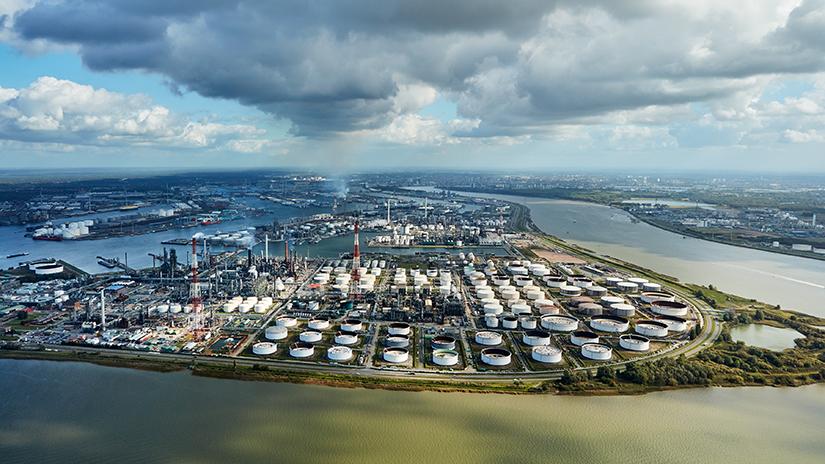Following a technical defect at the TotalEnergies oil refinery in Antwerp, contaminants entered a cooling water system at the site, which has ultimately led to “light” pollution of the nearby Scheldt river. A visible trace of pollution has now settled along the river’s surface.
“The entire production unit is shut down,” said Total Energies in a press release. “The authorities have been notified. Firefighters and an operational team were mobilised to keep the situation under control.”
“To prevent accidental risks and, in particular, major spills that could reach the environment, Totalenergies implements appropriate risk management policies,” the company states in its sustainability pledge.
The Scheldt is becoming increasingly dirty and several industrial pollution incidents have occurred in recent years.
A study conducted in December 2021 found that the level of toxic PFAS chemicals in fish in the West Scheldt was 800 times elevated and that fish from the river are not to be eaten. Fish often die in the Scheldt due to low oxygen levels and high contamination.
Related News
- 3M pollution: Garden excavations planned for nearby residents
- Family sues 3M over PFOS found in blood
There are suspicions that the high level of PFAS chemicals may be linked to the polluting 3M factory in Zwijndrecht. As of April, anyone living within 5 kilometres of the West Scheldt could register to have their blood tested for contaminants.
In 2020, French sugar producer Tereos spilled tonnes of sugar-beet pulp into the river which further deoxygenated the already polluted river. The Sustainable Eel Group estimates that around 99.5% of fish were killed in the 87 kilometres of river downstream from the dumping of sugar.
“For the 87 km of Scheldt river, all conservation efforts to stimulate aquatic biodiversity and life have been brought down to zero,” the group wrote. If not for emergency oxygenation of the river by the Flemish government, experts warn that the incident could have become an environmental disaster.

